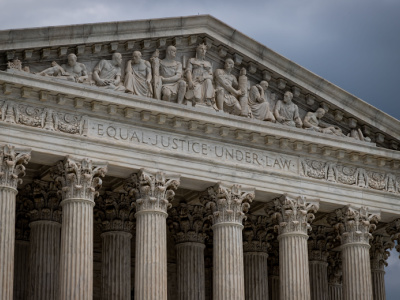The title is a prediction, not a done deal. But no later than June 2023, I believe the U.S. Supreme Court will jettison a 46-year-old case that neutered an employer’s obligation to reasonably accommodate all aspects of an employee’s religious observance or practice. And what will the vote be? 9-0. Read on.
How Did We Get Here?
Title VII of the Civil Rights Act of 1964 prohibits religious discrimination. Wanting to ensure employees could freely exercise their religious beliefs, Congress amended the Civil Rights Act in 1972 to “reasonably accommodate all aspects of an employee’s religious observance or practice…[that can be accomplished] without an undue hardship on the conduct of an employer’s business.” So far, so good.
But in 1977, the Supreme Court decided an “undue hardship” consisted of anything that imposed more than a de minimis cost on the employer. The result: Few reasonable accommodations were granted, and if the employer’s decision making was challenged in litigation, well, the employer—to borrow a phrase—“didn’t have a prayer.”
Enter Postal Worker Gerald Groff
Postal worker Gerald Groff is a Christian who believes Sunday is a day of rest and reflection. Accordingly, he refrains from work on Sunday, his Sabbath. All was fine until the United States Postal Service (USPS) signed a deal with Amazon under which it would deliver Amazon packages on Sundays.
At first, the USPS automatically scheduled another employee to cover Groff’s Sunday shift. Then it switched to a volunteer system in which employees could substitute for him. When they volunteered, all was fine. When they didn’t, the shift would go uncovered, and Groff would be disciplined.
Facing termination, Groff ultimately resigned. He sued, and he lost. And it was the undue burden that tripped him up. Here is a summary from his lawyers on why the appeals court concluded there was an undue burden that imposed more than de minimis cost:
The [appeals court] reasoned that “exempting Groff from working on Sundays caused more than a de minimis cost [on the USPS] because it actually imposed on his coworkers, disrupted the workplace and the workflow, and diminished employee morale…[and] placed a great strain on…personnel forcing them to “give up their family time [and] their ability to attend church services if they would have liked to…and “created a tense atmosphere with the other [employees]” and “resulted in other employees doing more than their share of burdensome work.”
Why Groff Will Win
First, the Court is more than inclined to look to the dictionary to define “undue burden,” which translates to “excessive hardship” or a hardship that is “more than appropriate or normal.” Compared to the definition of “de minimis,” which is “very small or trifling matters.” These are the words used by Congress, and the Court will give them their common and ordinary meaning.
Second, the reader might be asking where the Court came up with the de minis idea in 1977. Good question. The Court created it out of thin air. There’s no mention of the language or the concept in the statute or the legislative history to the statute. The current composition of the Court frowns—and this is an understatement—on cases being decided outside the text set out by Congress.
Third, there’s the language of “reasonable accommodation” used in the Americans with Disabilities Act (ADA). The plain meaning of that language has been interpreted as “significant difficulty or expense in light of the employer’s financial resources, the number of individuals it employs, and the nature of its operations and facilities.”
Finally, note the reliance of the appeals court on the attitudes and opinions of the other employees. That is a nonstarter. Why? What if an employee said morale is poor because they have to work with Asians who have difficulty in communicating in English, and this causes stress?
Like I predict, 9-0. Groff v. DeJoy.
Answered Prayers
I know employers are concerned by yet another burden. But think about the following:
- A religious belief must be sincerely held. Thus, during the pandemic, the courts made short work of a lawsuit filed by a hospital employee who refused to be vaccinated because he recalled a quote from the Buddha that people should decide matters for themselves. That’s it. That was the basis of his religion. That was a no go when he said the employer needed to accommodate his belief by letting him skip the vaccination.
- We work in a multicultural country. The long-predicted future is, in fact, here. Now.
- Always listen to a request for an accommodation. As noted in the previous point, a multicultural country will put you into contact with religious beliefs with which you are unfamiliar. Don’t be close minded. And in general, don’t make snap judgments about whether an accommodation is possible. Enter into a true dialogue with the employee. Treat their request as you would want your request treated.
I will be back when the decision comes out!
Michael P. Maslanka is a professor at the UNT-Dallas College of Law. You can reach him at michael.maslanka@unt-dallas.edu.

